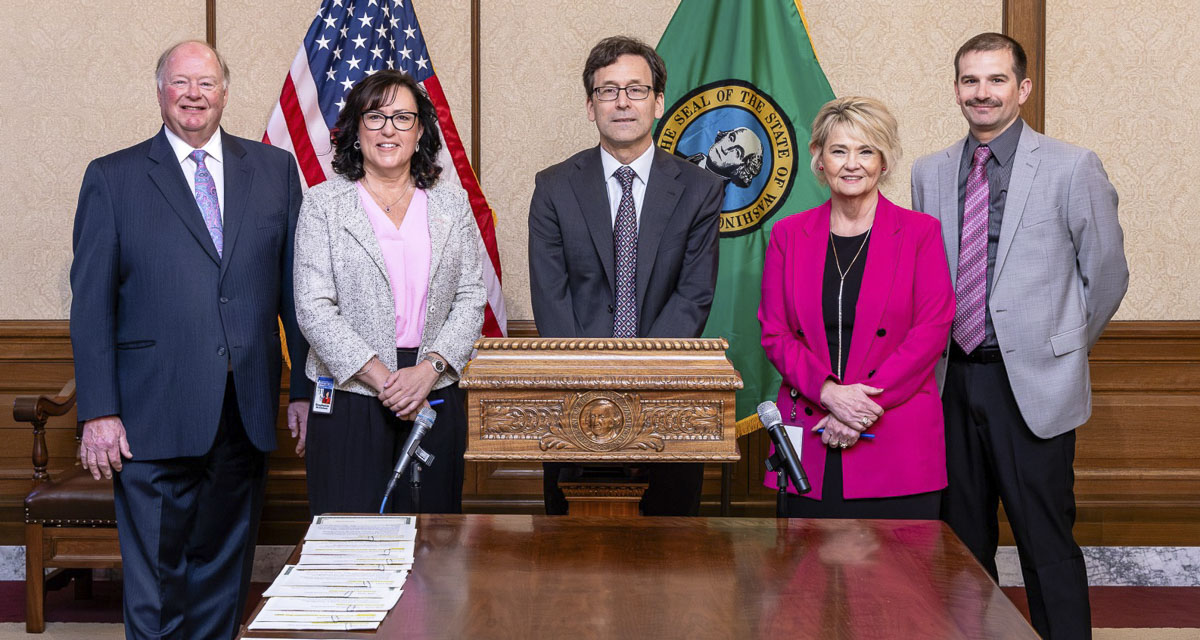
When the bill goes into effect on July 1, 2026, a student enrolled in an approved career and technical education program will be allowed to work for an employer approved by the program
A bill from Rep. Stephanie McClintock to give teenagers the right to work more hours while still in high school will officially become law next year after being signed by the governor on Monday.
House Bill 1121, which received unanimous approval in the House and overwhelming support in the Senate, will allow 16- or 17-year-old minors to work the same number and frequency of hours during the school year as allowed during summer, school vacations, or holidays if they meet certain requirements.
“This bill encourages kids to pursue careers in the trades, which will help fill a need in Washington’s workforce,” said McClintock, R-Vancouver. “It will also allow kids to get work experience for their future careers and be a motivating force in helping them think creatively and independently. That is a key factor in helping them become a successful part of the workforce after they graduate.”
When the bill goes into effect on July 1, 2026, a student enrolled in an approved career and technical education program will be allowed to work for an employer approved by the program. A “career and technical education program” refers to a work-based learning program approved by the Office of the Superintendent of Public Instruction or the minor’s school district.
The same allowance of hours must be made for a 16- or 17-year-old enrolled in a bona fide college program, except the minor is not required to work for an approved employer.
“A lot of teens, including many who don’t plan to go to college, work while they attend school but can only work a very limited number of hours,” said McClintock. “However, many students are ready and capable of working more hours. This legislation will make that possible.”
She continued: “Working more hours gives them additional on-the-job training and education and will benefit them financially. It’s a good alternative for kids with extra time on their hands and increases the number of trade workers for Washington’s future workforce.”
The 105-day 2025 legislative session ends on Sunday, April 27.
Information provided by the Washington State House Republicans, houserepublicans.wa.gov
Also read:
- WA governor pressed to veto $1.8B piece of Democrats’ tax billGrocers and restaurateurs are urging Gov. Ferguson to veto a surcharge in HB 2081 that they say will raise food prices statewide.
- Letter: ‘It’s said sarcasm is the lowest form of wit’Amboy resident Thomas Schenk criticizes Olympia’s use of “emergency clauses” and other legislative tactics that limit public participation.
- Opinion: What the 2025 legislature tells us about why Washington’s government keeps failingTodd Myers of the Washington Policy Center argues that Washington’s government fails because it resists humility, experimentation, and accountability in its policymaking.
- Town hall: Republicans say they are the ones fighting for the working classFour Republican legislators gathered in Battle Ground for a town hall to address rising taxes, education concerns, and their push to support Washington’s working class.
- Pooneh Gray Files for Vancouver City CouncilPooneh Gray has filed to run for Position #1 on the Vancouver City Council, emphasizing public safety, homelessness solutions, and community justice.











Excellent. If teens want or need to work, it can be excellent training!
I’m Anna Miller and I approve of this legislation!